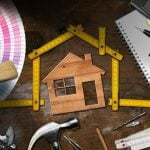Are you wondering what home improvements are taxable? Understanding how home improvement projects can affect your tax liability is crucial for homeowners. From renovations that increase property value to tax deductible improvements, there are various factors to consider when it comes to home improvement taxation.
When it comes to understanding home improvement taxation, it’s important to be aware of the types of home improvements that are taxable. Certain renovations and upgrades can increase the value of your property, which in turn can impact your tax liability. Additionally, knowing how to calculate the taxable value of home improvements and the impact of renovations on capital gains tax is essential for homeowners.
Renovations like adding a new room or upgrading a kitchen can not only increase your property’s value but also potentially result in a higher tax liability. On the other hand, certain home improvements may qualify for tax deductions, providing some relief for homeowners. It’s important to know which improvements qualify for tax deductions and consult with a tax professional for accurate advice on navigating home improvement taxation laws.
Types of Home Improvements That Are Taxable
When it comes to home improvements, understanding what is taxable and what is not can save homeowners a headache come tax season. Certain types of home improvements are considered taxable by the IRS, which means they can have an impact on your property taxes or capital gains tax when you sell your home. Here are the types of home improvements that are typically considered taxable:
1. Room Additions: Adding new rooms to your house, such as a bedroom or bathroom, can increase the value of your property and therefore may increase your property taxes.
2. Swimming Pools and Hot Tubs: Installing luxurious additions like swimming pools and hot tubs can also lead to higher property taxes since they add value to your home.
3. Detached Structures: Building detached structures such as garages, sheds, or guest houses can also result in higher property taxes, as they increase the overall value of your property.
It’s important to note that while these types of home improvements are generally taxable, there are certain exceptions and nuances that can affect their taxability.
Homeowners should be aware that making certain renovations can not only increase their property value but also their tax liability. It’s crucial for homeowners to understand how specific renovations can impact their tax situation and consult with a tax professional if they have any questions about what home improvements are taxable.
Renovations That Can Increase Property Value and Tax Liability
When homeowners invest in renovations, they often focus on the potential increase in property value. However, it’s important to consider the tax implications of these improvements as well. Certain renovations can not only raise the value of a home but also result in increased tax liability.
Types of Renovations That Can Increase Property Value
Some of the most common renovations that can significantly increase the value of a property include kitchen and bathroom remodels, adding a deck or patio, finishing a basement, and improving energy efficiency with new windows or insulation. These upgrades can make a home more appealing to potential buyers and justify a higher asking price.
Tax Liability for Home Improvements
It’s crucial for homeowners to understand that while these renovations can add value to their property, they may also lead to an increase in property taxes. Local governments assess property taxes based on the appraised value of a home, which takes into account any improvements made.
As a result, homeowners should be prepared for potentially higher tax bills after making these types of renovations. This is why it’s important to carefully consider the financial impact before proceeding with any major home improvement projects.
Tax Deductible Home Improvements
When it comes to home improvements, understanding which ones are tax deductible is crucial for homeowners. Tax deductible home improvements are those that can be deducted from your federal income taxes, resulting in a lower tax bill. It’s important to note that not all home improvements are eligible for tax deductions, so knowing which ones qualify is essential.
Some common examples of tax deductible home improvements include energy efficient upgrades such as installing solar panels or energy-efficient windows, as well as making renovations for medical purposes such as adding wheelchair ramps or widening doorways. Additionally, improvements that increase the value of your home, such as a new roof or updated HVAC system, may also be eligible for tax deductions.
It’s important to keep detailed records of all expenses related to these improvements, including receipts and invoices, in order to claim them when filing your taxes. Consult with a tax professional to ensure that you are taking advantage of all eligible deductions and accurately calculating the deductible value of your home improvements.
| Types of Tax Deductible Home Improvements | Eligibility Criteria |
|---|---|
| Energy-efficient upgrades (solar panels, windows) | Must meet specific energy efficiency requirements |
| Renovations for medical purposes (wheelchair ramps, widened doorways) | Must be medically necessary and prescribed by a licensed professional |
| Improvements that increase property value (roof replacement, HVAC system) | Must directly impact the value of the property |
How to Calculate the Taxable Value of Home Improvements
When it comes to home improvements, understanding the taxation implications is crucial. Figuring out what home improvements are taxable can help homeowners avoid any surprises when it comes time to file their taxes. Calculating the taxable value of home improvements involves taking into consideration various factors, including the type of improvement, the cost, and any potential increase in property value.
One of the key factors in determining the taxable value of home improvements is whether they are considered repairs or capital improvements. Repairs are typically deductible in the year they were made, while capital improvements are added to the basis of the property and may be subject to depreciation or capital gains tax when the property is sold.
Some common types of home improvements that may be taxable include adding a new room, remodeling a kitchen or bathroom, installing a swimming pool or hot tub, and adding a security system. These improvements can increase the overall value of the property and may impact tax liability when it comes time to sell.
It’s important for homeowners to keep detailed records and receipts of all home improvement expenses. This includes not only the initial cost of the improvement, but also any maintenance or repair costs associated with it over time. Consulting with a tax professional can provide valuable insight into what home improvements are taxable and how they may impact a homeowner’s tax situation.
| Type of Home Improvement | Taxable Status |
|---|---|
| Adding a new room | Taxable |
| Remodeling a kitchen or bathroom | Taxable |
| Installing a swimming pool or hot tub | Taxable |
| Adding a security system | Taxable |
The Impact of Home Renovations on Capital Gains Tax
When it comes to home renovations, it’s important to consider the potential impact on capital gains tax. Making improvements to your home can increase its value, which in turn can affect the amount of capital gains tax you may owe when you sell the property. Understanding the relationship between home renovations and capital gains tax is crucial for homeowners looking to make profitable investments in their properties.
Types of Home Improvements That Can Impact Capital Gains Tax:
- Adding square footage
- Upgrading kitchen or bathrooms
- Installing a new roof or HVAC system
These types of improvements can significantly increase your property’s value, which can lead to a higher capital gains tax liability when you sell the home. It’s essential for homeowners to keep track of all renovation expenses and maintain records of any work done on the property in order to accurately calculate the taxable value of the improvements.
Calculating the Taxable Value of Home Improvements:
- Keep detailed receipts and invoices for all renovation expenses.
- Determine the increase in your property’s value due to renovations.
- Consult a professional appraiser if necessary to assess the impact of renovations on your home’s value.
It’s important for homeowners to be aware of how their home improvements can potentially affect their capital gains tax liability. By staying informed about what home improvements are taxable, homeowners can make informed decisions about renovating their properties and minimize any unexpected tax liabilities in the future.
Important Tax Considerations for DIY Home Improvements
When it comes to home improvements, many homeowners choose the do-it-yourself (DIY) route to save money and add a personal touch to their projects. However, it’s important to understand the tax implications of DIY home improvements to avoid any unexpected tax liabilities. Here are some important tax considerations for DIY home improvements.
Understanding the Taxability of DIY Home Improvements
While DIY home improvements can be a great way to enhance your living space, it’s essential to know which expenses are considered taxable by the IRS. In general, any improvements that increase the value of your property or extend its useful life may be subject to taxation when you sell your home. This means that even if you complete the renovations yourself, the added value could impact your future tax liability.
Tracking Expenses and Documentation
One key consideration for DIY home improvements is keeping accurate records of all expenses and documentation related to the project. This includes receipts for materials, permits, and any professional services hired for specific tasks. Proper documentation will not only help you track your expenses but also come in handy if you need to prove the cost basis of your property at a later date.
Seeking Professional Tax Advice
Given the complexity of tax laws and regulations related to home improvements, it’s always advisable to seek professional tax advice before embarking on any major DIY projects. A tax professional can provide guidance on which expenses are deductible, how to calculate the taxable value of your improvements, and other important considerations that could impact your overall tax situation.
Whether it’s consulting with a certified public accountant (CPA) or a tax attorney, taking this step can help ensure that you’re making informed decisions regarding DIY home improvements and their potential tax implications.
Common Misconceptions About Home Improvement Taxation
One common misconception about home improvement taxation is that all home improvements are subject to taxes. However, this is not entirely true. While some home improvements can increase property value and thus result in higher property taxes, not all home improvements are taxable.
Another misconception is that you can deduct all home improvement expenses from your taxes. In reality, only certain types of home improvements are tax-deductible, such as those that make your home more energy-efficient or improve accessibility for individuals with disabilities.
Additionally, there is a misunderstanding that DIY home improvements are not subject to taxation. Whether a homeowner hires a professional or does the work themselves, certain home improvements may still have tax implications. It’s important to understand what home improvements are taxable and how they may impact your tax liability.
When it comes to understanding what home improvements are taxable, it’s essential to consult a tax professional. They can provide personalized advice based on your specific situation and help you navigate the complexities of home improvement taxation. By seeking expert guidance, homeowners can ensure they are making informed decisions and maximizing any potential tax benefits associated with their renovations.
Consult a Tax Professional for Home Improvement Tax Advice
In conclusion, understanding the taxation of home improvements is crucial for homeowners who want to avoid unexpected tax liabilities and maximize potential deductions. It’s important to know which types of home improvements are taxable, as well as how renovations can impact property value and tax liability. Additionally, knowing which home improvements are tax deductible can help offset some of the costs associated with improving a property.
Consulting a tax professional is essential for obtaining accurate and personalized advice on what home improvements are taxable. A professional can provide guidance on how to calculate the taxable value of home improvements, as well as offer important considerations for DIY projects that could affect taxes. Furthermore, they can advise on the impact of home renovations on capital gains tax, helping homeowners navigate potential tax implications when selling their property.
It’s also crucial to be aware of common misconceptions about home improvement taxation and seek expert advice to ensure compliance with relevant tax laws. Ultimately, consulting a tax professional for home improvement tax advice is the best way for homeowners to make informed decisions about their property and avoid any unexpected tax consequences.
Frequently Asked Questions
What Does the IRS Consider Home Improvements?
The IRS considers home improvements as enhancements that add value to your home, prolong its useful life, or adapt it to new uses. This includes renovations to the kitchen, bathroom, and other parts of the house.
Is a Bathroom Remodel Tax Deductible?
Generally, a bathroom remodel is not tax deductible as a personal expense. However, if the remodel includes features that make the bathroom accessible for those with disabilities, it may qualify for a medical deduction under certain conditions.
Are Home Office Improvements Tax Deductible?
Home office improvements may be tax deductible if the office is used exclusively and regularly for business purposes. Eligible improvements may include repairs, maintenance, or renovations that directly relate to the home office space. It’s important to keep detailed records and consult with a tax professional for guidance on deductibility.

I’m thrilled to have you here as a part of the Remodeling Top community. This is where my journey as an architect and remodeling enthusiast intersects with your passion for transforming houses into dream homes.





